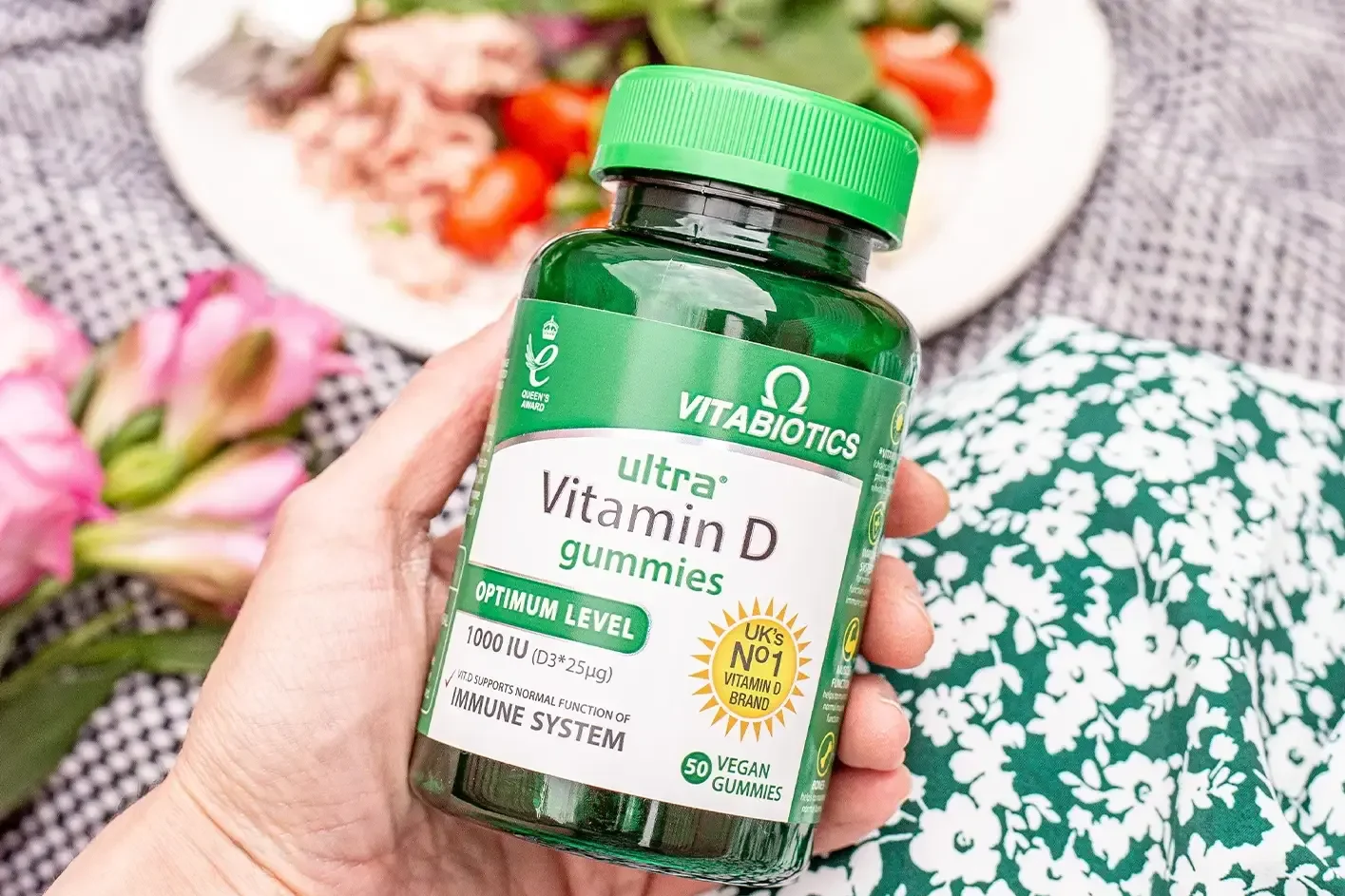Vitamin D Deficiency Symptoms: Women & Men

Vitamin D Deficiency Symptoms: Women & Men
Table of Contents
Vitamin D often dubbed the sunshine vitamin plays a pivotal role in numerous bodily functions far beyond just bone health. From bolstering the immune system to influencing mood and energy levels adequate vitamin D is essential for overall well being in both women and men. However despite its importance vitamin D deficiency is a widespread global health concern often going unnoticed until its effects become significant.
Recognizing the subtle and sometimes not so subtle vitamin D deficiency symptoms in women and men is crucial for early detection intervention and preventing potential long term health consequences. This comprehensive guide will illuminate the diverse array of symptoms that can manifest in both sexes when vitamin D levels dip too low exploring the commonalities and potential gender specific nuances.
We will delve into the often overlooked signs of deficiency ranging from fatigue and muscle weakness to bone pain mood changes and compromised immunity providing a detailed understanding of how vitamin D deficiency can present in both women and men. By recognizing these telltale signs individuals can proactively seek testing and implement strategies to optimize their vitamin D levels paving the way for improved health and vitality without the hindrance of unnecessary hyphenation in their pursuit of wellness knowledge.
Okay, here are a few examples of vitamin D supplements from reputable brands, along with general guidelines on usage. It is crucial to emphasize that these are general recommendations and individuals should always consult their doctor for personalized advice on dosage and frequency based on their specific vitamin D levels, health conditions, and other medications.
Here are the examples:
1.Nature Made
- Product: Vitamin D3 5000 IU (125 mcg) Softgels
- Description: Nature Made is a well-known and trusted brand for vitamins and supplements. Their Vitamin D3 5000 IU softgels provide a high dose of cholecalciferol, the more bioavailable form of vitamin D. This strength is often recommended by doctors for individuals diagnosed with a deficiency or those with limited sun exposure. The softgel form aids in absorption.
- General Usage (Consult a Doctor for Personalized Advice):
- Daily Dosage: Typically one softgel daily with a meal to enhance absorption, unless otherwise directed by a healthcare professional.
- Weekly Dosage: Seven softgels per week, spaced out daily.
- Important Note: This high dose is generally not recommended for long-term use without regular monitoring of vitamin D blood levels by a doctor. It’s often used to quickly replenish deficient levels under medical supervision.
2. Nordic Naturals
- Product: Vitamin D3 1000 IU (25 mcg) Gummies
- Description: Nordic Naturals is renowned for its high-quality fish oil and other supplements. Their Vitamin D3 1000 IU gummies offer a palatable alternative to capsules or tablets, making them easier to take for some individuals. They provide a moderate dose of vitamin D3 and are often free from artificial colors and flavors.
- General Usage (Consult a Doctor for Personalized Advice):
- Daily Dosage: Typically one gummy daily with a meal, unless otherwise directed by a healthcare professional. Some individuals with higher needs might be advised to take more under medical supervision.
- Weekly Dosage: Seven gummies per week, spaced out daily.
- Important Note: This lower dose is often used for maintenance once adequate levels have been achieved or for individuals with a lower risk of severe deficiency, always under the guidance of a healthcare professional.
3. NOW Foods
- Product: Vitamin D3 2000 IU (50 mcg) Capsules
- Description: NOW Foods is a popular brand known for its affordability and quality supplements. Their Vitamin D3 2000 IU capsules provide a mid range dose of cholecalciferol in an easy to swallow capsule form. This dosage can be suitable for individuals with mild deficiency or those seeking to maintain healthy levels, depending on their doctor’s recommendations.
- General Usage (Consult a Doctor for Personalized Advice):
- Daily Dosage: Typically one capsule daily with a meal containing fat for better absorption, unless otherwise directed by a healthcare professional.
- Weekly Dosage: Seven capsules per week, spaced out daily.
- Important Note: This dosage is a common maintenance dose for many adults, but individual needs can vary significantly. Medical consultation is essential to determine the correct amount.
Important Disclaimer:
The information provided above is for general knowledge and informational purposes only, and does not constitute medical advice. It is essential to consult with a qualified healthcare professional, such as your doctor, to determine your individual vitamin D needs, the appropriate dosage, and the best product for you.
Your doctor can assess your vitamin D levels through blood tests and take into account your specific health status, medications, and lifestyle factors to provide personalized recommendations. Self treating with high doses of vitamin D can be harmful, and regular monitoring by a healthcare professional is crucial, especially for higher dosages.
The Body’s SOS Signals Unpacking Common Vitamin D Deficiency Symptoms in Both Sexes
While some symptoms of vitamin D deficiency can be subtle and easily attributed to other causes certain signs are commonly experienced by both women and men when their vitamin D levels are insufficient. Recognizing these shared indicators is the first step towards identifying a potential deficiency.
- Persistent Fatigue and Tiredness The Overwhelming Lack of Energy: One of the most frequently reported vitamin D deficiency symptoms in women and men is persistent fatigue and a general feeling of tiredness or lack of energy. This isnt just ordinary tiredness it can be a profound and debilitating fatigue that doesnt improve with rest significantly impacting daily life and often being an early indicator of low vitamin D levels in both sexes.
- Muscle Weakness and Aches The Heavy Limbs and Soreness: Muscle weakness and aches particularly in the legs back and joints are another common manifestation of vitamin D deficiency in both women and men. Vitamin D is crucial for muscle function and its deficiency can lead to a feeling of heaviness weakness and general soreness making everyday activities more challenging and often being a key symptom reported by individuals with low vitamin D.
- Bone Pain and Back Pain The Deep Aches and Discomfort: Vitamin D plays a vital role in calcium absorption which is essential for maintaining strong and healthy bones. Consequently bone pain and back pain especially persistent dull aching pain can be a significant vitamin D deficiency symptom in women and men indicating weakened bones or osteomalacia a condition associated with severe vitamin D deficiency in adults of both sexes.
- Frequent Infections and a Weakened Immune System The Constant Battle Against Illness: Vitamin D is crucial for a healthy immune system helping the body fight off bacteria and viruses. Frequent infections such as colds flu and respiratory infections can be a telltale vitamin D deficiency symptom in women and men indicating a compromised immune response due to insufficient levels of this vital nutrient.
- Slow Wound Healing The Body’s Delayed Repair Process: Adequate vitamin D levels are necessary for proper wound healing. If you notice that cuts scrapes or surgical wounds are taking longer than usual to heal this could be a vitamin D deficiency symptom in both women and men suggesting impaired tissue repair and regeneration due to low vitamin D.
- Hair Loss The Thinning Strands and Shedding: While hair loss can have various causes vitamin D deficiency has been linked to hair loss in both women and men. Noticeable hair thinning or increased shedding could be another vitamin D deficiency symptom in both sexes although further investigation is needed to rule out other potential factors.
- Mood Changes and Depression The Cloud of Low Spirits: Emerging research suggests a link between vitamin D levels and mood regulation. Low vitamin D has been associated with an increased risk of mood disorders such as depression in both women and men making persistent low mood sadness or feelings of hopelessness a potential vitamin D deficiency symptom in both sexes.
Subtle Signals and Nuances Potential Gender Specific Vitamin D Deficiency Symptoms
While many vitamin D deficiency symptoms are shared between women and men some subtle signs or manifestations might be more commonly reported or have specific implications for each sex. Recognizing these potential gender specific nuances can aid in earlier identification.
In Women:
- Increased Risk of Osteoporosis and Fractures The Fragile Bones: Due to hormonal changes particularly during menopause women are already at a higher risk of osteoporosis a condition characterized by weakened bones and increased fracture risk. Vitamin D deficiency can exacerbate this risk making women more susceptible to bone fractures particularly in the hip spine and wrist potentially presenting as a more pronounced vitamin D deficiency symptom in women especially post menopause.
- Pelvic Pain and Menstrual Irregularities The Hormonal Interplay: Some studies suggest a potential link between low vitamin D levels and pelvic pain as well as menstrual irregularities in women. While more research is needed these could be less common but potentially relevant vitamin D deficiency symptoms in some women.
- Increased Risk of Certain Autoimmune Conditions The Immune System Imbalance: Women are generally more prone to autoimmune diseases such as multiple sclerosis and rheumatoid arthritis. Some research suggests that vitamin D deficiency may play a role in the development or severity of these conditions potentially making the symptoms of these autoimmune diseases more pronounced in women with low vitamin D.
In Men:
- Erectile Dysfunction The Link to Vascular Health: Some studies have indicated a potential association between low vitamin D levels and erectile dysfunction in men. Vitamin D plays a role in vascular health and its deficiency might contribute to issues affecting blood flow potentially manifesting as a vitamin D deficiency symptom in some men.
- Increased Risk of Prostate Issues The Hormonal Connection: Research suggests a possible link between vitamin D deficiency and an increased risk of certain prostate issues in men. While the exact mechanisms are still being investigated this could be a less common but potentially relevant consideration regarding vitamin D deficiency symptoms in men.
- Muscle Weakness and Reduced Muscle Mass The Strength Decline: While muscle weakness is a common symptom in both sexes some studies suggest that vitamin D deficiency might have a more pronounced impact on muscle strength and mass in men potentially presenting as a more significant vitamin D deficiency symptom in men particularly as they age.
It is important to note that these potential gender specific symptoms are still under investigation and more research is needed to establish definitive links. However being aware of these nuances can prompt further discussion with healthcare professionals.
Unmasking the Deficiency The Importance of Testing and Diagnosis
While recognizing the symptoms is crucial the only definitive way to diagnose vitamin D deficiency is through a blood test that measures the level of 25 hydroxyvitamin D (25(OH)D) in your blood. This test provides an accurate assessment of your bodys vitamin D stores. If you experience several of the aforementioned vitamin D deficiency symptoms it is essential to consult your doctor and request a vitamin D blood test for proper diagnosis and management.
Basking in Health Strategies for Optimizing Vitamin D Levels and Preventing Deficiency
Once a vitamin D deficiency is diagnosed or if you are at risk of deficiency implementing strategies to optimize your vitamin D levels is crucial for alleviating symptoms and preventing long term health consequences.
- Sunlight Exposure The Natural Vitamin D Factory: The primary way our bodies produce vitamin D is through direct skin exposure to sunlight specifically UVB rays. Aim for 10 30 minutes of midday sun exposure on large areas of skin (face arms legs) several times a week. However it is crucial to balance sun exposure with sun safety measures such as wearing sunscreen to prevent skin cancer especially during peak hours or for prolonged exposure. The amount of vitamin D produced depends on factors like skin color latitude time of day and cloud cover.
- Dietary Sources The Vitamin D Rich Foods: While sunlight is the most efficient source some foods naturally contain vitamin D or are fortified with it. Include vitamin D rich foods in your diet such as fatty fish (salmon mackerel tuna) egg yolks fortified milk fortified yogurt fortified orange juice and fortified cereals. However dietary sources alone often cannot provide sufficient vitamin D to meet the bodys needs particularly if sun exposure is limited.
- Vitamin D Supplements The Convenient Boost: Vitamin D supplements are an effective way to increase and maintain adequate vitamin D levels especially when sun exposure and dietary intake are insufficient. Vitamin D3 (cholecalciferol) is generally considered more effective than vitamin D2 (ergocalciferol). The appropriate dosage varies depending on your current vitamin D levels age health conditions and other factors. It is crucial to consult your doctor before starting vitamin D supplementation to determine the correct dosage and monitor your levels. Brands like Nature Made Nordic Naturals and NOW Foods offer a variety of vitamin D3 supplements in different strengths and formulations (e.g., tablets capsules liquid). Your doctor can recommend the best product and dosage for your individual needs.
Illuminating the Path to Adequate Vitamin D and Vibrant Health
Recognizing the diverse vitamin D deficiency symptoms in women and men is paramount for proactive health management. From the shared signs of fatigue and muscle weakness to the potential gender specific nuances understanding these indicators empowers individuals to seek timely testing and intervention.
Optimizing vitamin D levels through a combination of sensible sunlight exposure a vitamin D rich diet and appropriate supplementation under medical guidance is essential for alleviating symptoms preventing deficiency and promoting overall well being in both sexes. By shedding light on this silent scourge we can collectively move towards a healthier more vibrant future fueled by the sunshine vitamin.
Vitamin D Deficiency Symptoms in Women and Men FAQ
Q: Can vitamin D deficiency cause headaches?
A: While not as common as fatigue or muscle weakness some studies have linked low vitamin D levels to an increased risk of headaches. However more research is needed to establish a definitive connection.
Q: Is vitamin D deficiency more common in certain populations?
A: Yes vitamin D deficiency is more prevalent in individuals with limited sun exposure those with darker skin older adults obese individuals and those with certain medical conditions that affect vitamin D absorption.
Q: How much sun exposure is needed to get enough vitamin D?
A: The amount of sun exposure needed varies greatly depending on factors like skin color latitude time of day and cloud cover. Generally 10 30 minutes of midday sun on large areas of skin several times a week is often recommended but always prioritize sun safety.
Q: Can you get too much vitamin D from sunlight?
A: It is very difficult to get too much vitamin D from sunlight alone because the body has mechanisms to regulate its production. However excessive sun exposure still carries the risk of skin damage.
Q: What is the optimal vitamin D level in the blood?
A: The optimal vitamin D level is generally considered to be between 30 and 50 ng/mL (nanograms per milliliter). However your doctor may recommend different target levels based on your individual health needs.
Q: Are there any drug interactions with vitamin D supplements?
A: Yes vitamin D supplements can interact with certain medications such as corticosteroids and some weight loss drugs. It is important to inform your doctor about all medications and supplements you are taking.
Q: Can vitamin D deficiency cause weight gain?
A: While some studies have suggested a possible link between low vitamin D levels and weight gain more research is needed to establish a direct causal relationship.
Q: Are there any early warning signs of vitamin D deficiency?
A: Some early signs can include fatigue general aches and pains and frequent minor illnesses. However these symptoms can be vague and easily attributed to other causes making testing important for diagnosis.
Q: Can vitamin D deficiency affect sleep?
A: Some research suggests a potential link between low vitamin D levels and sleep disturbances but more studies are needed to fully understand this relationship.
Q: Should everyone take vitamin D supplements?
A: Not everyone needs to take vitamin D supplements. The need for supplementation depends on individual factors such as sun exposure dietary intake and vitamin D blood levels. It is best to consult your doctor to determine if supplementation is right for you and what the appropriate dosage is.











